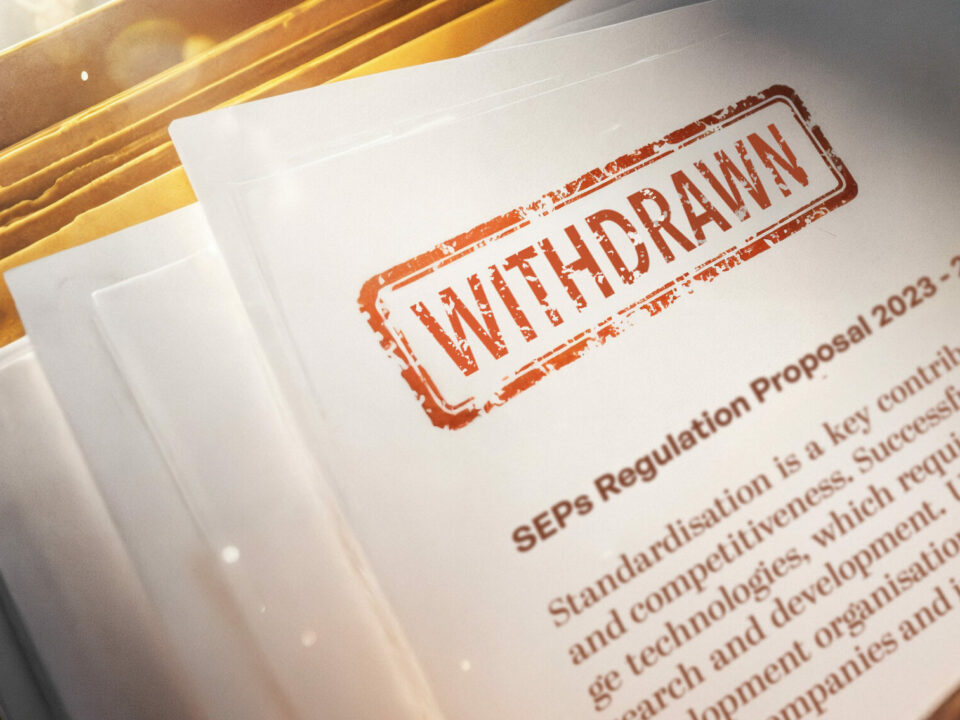IAM: No licensing under the new IEEE patent policy, say Ericsson and Nokia
Ericsson and Nokia have told IAM that they will not be making licensing commitments under the new patent policy introduced by the Institute of Electrical and Electronics Engineers (IEEE). The moves, which follow similar announcements by Qualcomm and InterDigital, place serious questions over the IEEE’s ability to implement the changes across the tech industry and to maintain its status as one of the leading standards organisations in areas such as Wi-Fi.
Both Ericsson and Nokia informed the IEEE that it would not license under the new policy some months before the changes were confirmed in February. However, up until now neither company has confirmed its decision nor spoken publicly about the reasons.
“The new policy risks reducing the value of standard essential patents (SEPs) to the point where there’s no business sense in contributing new technology when the rewards will be so meagre,” Monica Magnusson, Ericsson’s IP rights commercialisation manager explained in an exclusive interview with IAM.
In a statement sent to us today (Friday), a spokesperson for Nokia detailed its opposition to the changes: “Nokia believes that the new IEEE patent policy removes incentives for companies to make their patents available for licensing under IEEE standards in the future, and the lack of compatibility with other standards organisations sets IEEE apart from the standardisation community.” The statement ended: “Nokia notified IEEE before the changes were adopted that it would not be prepared to make licences available under the new patent policy, but that it would continue to honour commitments already given under the previous policy. Nokia will stick to that position and is prepared to offer licences under its future SEPs on the previous patent policy terms.”
The new IEEE patent policy significantly shifts the balance of power in licensing negotiations over SEPs between companies contributing to a standard and those implementing the patents. Among a range of changes, it reduces the chances of patent owners obtaining injunctive relief against potential licensees who say they are willing to negotiate deals but then fail to agree terms and shifts the basis for royalty payments so that they relate to a patent’s contribution to a standard rather than to the value of an overall device.
The IEEE confirmed that it was making the changes to its patent policy after they had been approved by a series of majority votes by the Institute’s patent committee, its board of governors and its board of directors. The US Department of Justice also gave the changes its blessing insisting in a business review letter that the new policy could help reduce the chance of patent hold-up and royalty stacking.
However, the changes have proved controversial from the start. Soon after they were announced Qualcomm revealed that it would only make licensing commitments under the old policy. InterDigital then followed suit with company CEO Bill Merritt explaining their opposition to the changes in a blog post for IAM.
Last week Cisco General Counsel Mark Chandler and the company’s senior director for anti-trust and competition Gil Ohana, responded to Merritt’s article in a piece for EE Times. In it they declared: “Cisco and the other tech industry leaders that supported the updates agree: what the IEEE has done benefits tech industry innovation and the customers Cisco and other tech industry leaders serve.”
As that article underlined, the fallout over the new IEEE standards resembles many of the disagreements in the tech community over current patent law and policy. One group of tech companies is pushing strongly for broad legislative changes and strong judicial action to curb what they see as abusive action by patent owners, while another group insists that proposed changes represent a fundamental diminishing of patent rights. With the IEEE now facing the prospect of having to implement two policies, how it responds will be closely followed by patent owners and licensees alike.



